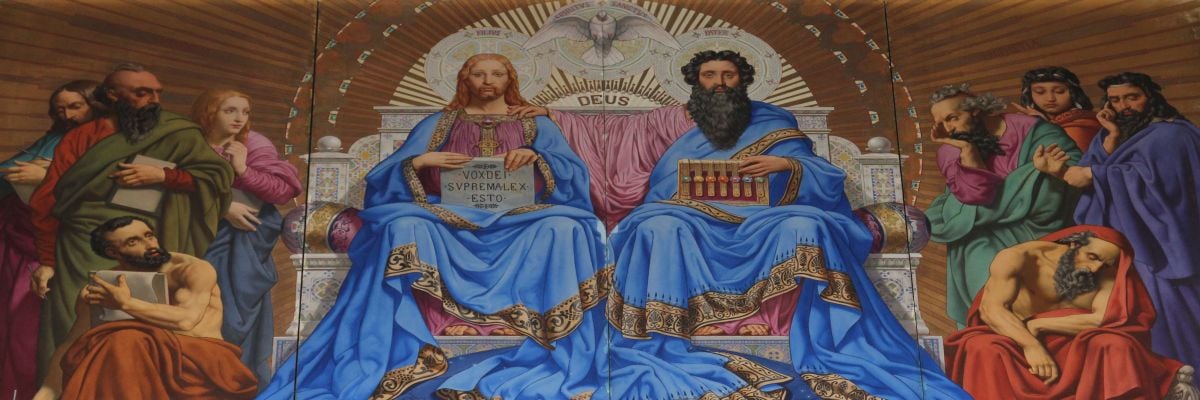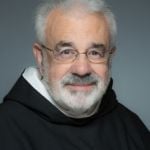
Question:
Answer:
One can respond simply that God has revealed himself as three persons—and that is that. We must remember that God is not merely a bigger version of us and that unless he explains himself, any attempt to fully understand him is like trying to contain an ocean in a thimble.
We know from Church teaching that the Trinity is at the heart of Christianity. St. Thomas Aquinas reminds us that while it is possible to reason to the existence of God, we can know the Trinity only because of what Jesus has revealed to us about it.
However, Aquinas reflected on how we might gain some insight into the mystery of the Godhead. Even though we refer to the Father and the Son, and the Holy Spirit as persons, the reality of such terminology far outstrips anything we understand by the word person. So the divine persons are not separate individuals as in a father, a son, and a dove but are essentially distinct by their relationships with each other. Relationship is the key.
For St. Thomas, the Trinity is the relationship of self-knowledge and love that exist in God. We can identify with this in that we know that we exist as the persons that we are. But we can also reflect on who we are. We have knowledge about ourselves. Now, this self-knowledge proceeds from ourselves as a separate and yet definite part of who we are. There is a relationship between us and our awareness of who we are.
The Trinity shows us a somewhat similar sort of relationship existing in God. So God the Father is God. Proceeding from God is God’s self-knowledge of himself—and this is actually the Son. The Holy Spirit is the relationship of love between God’s self-knowledge (the Son) and God (the Father). In loving the Father and the Son, the Holy Spirit completes the Trinity, rendering any further divine persons impossible.



